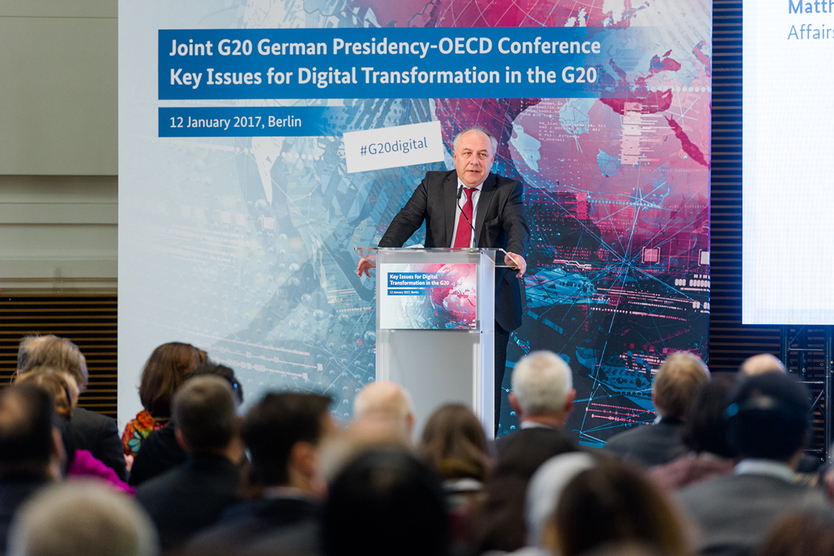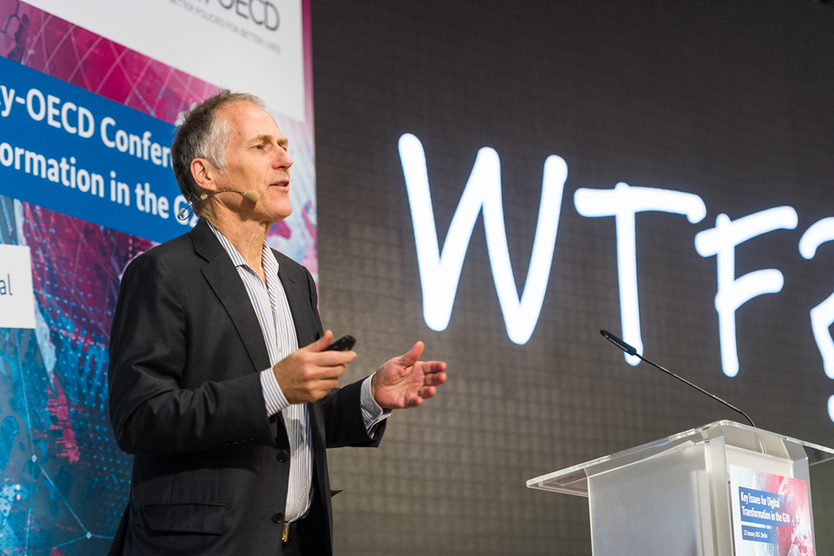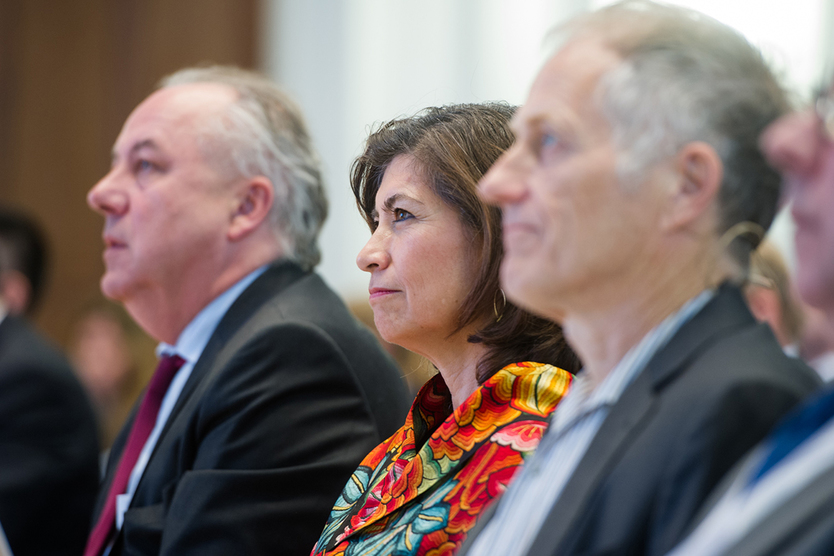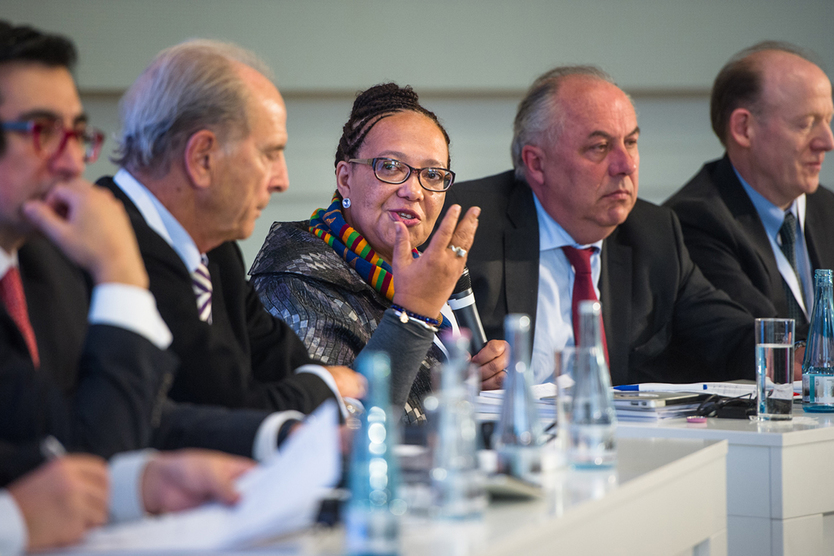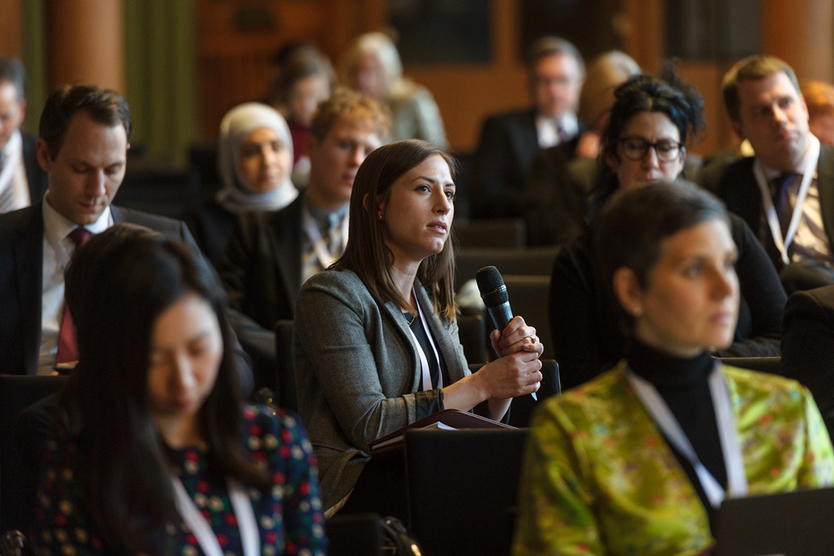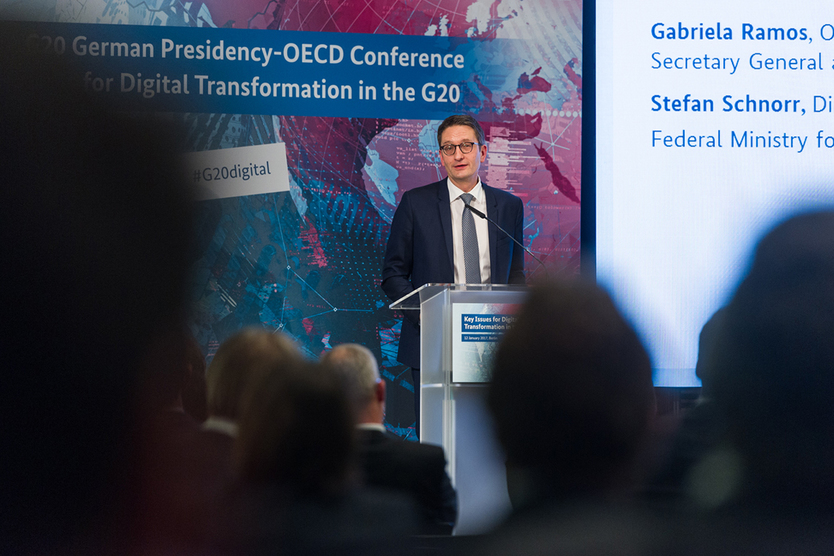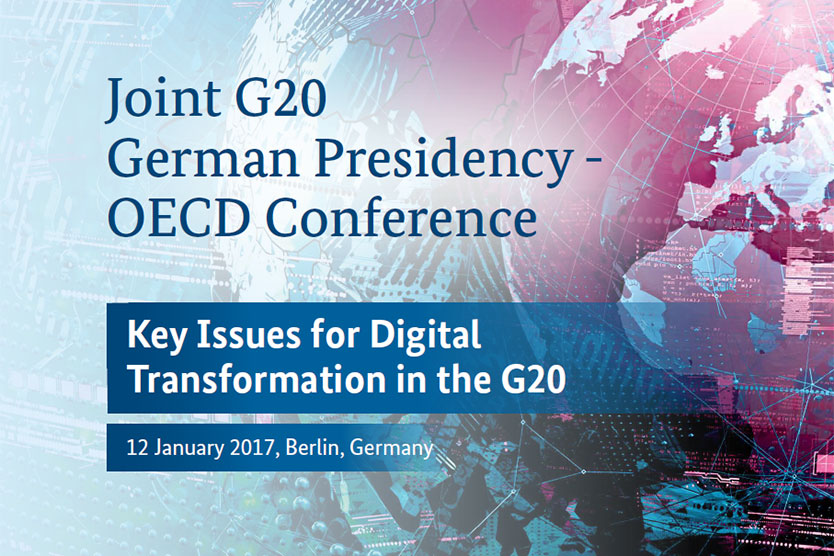
© Shutterstock
Statesecretary at the Federal Ministry for Economic Affairs and Energy, Matthias Machnig, launched today the digital conference entitled “Key Issues for Digital Transformation in the G20” which is jointly being hosted by the German G20 presidency and the OECD. The conference will kick off the G20 digital ministers’ process launched by Federal Minister Gabriel, which will culminate in a meeting of G20 digital ministers in Düsseldorf on 6-7 April.
Gabriela Ramos, G20-Sherpa and Chief of Staff of the OECD, presented the key findings of the "Key Issues for Digital Transformation in the G20" report prepared by the OECD on behalf of the Federal Ministry for Economic Affairs and Energy. She stressed the need for policies that bolster fair competition, trust and confidence in the digital economy and widely ensure access to the technologies as well as the know-how to use them. These issues will be key themes for a 2-year, OECD-wide project – "Going Digital: Making the Transformation Work for Growth and Well-being" – which was also launched at the conference.
On the occasion of the conference Minister Gabriel underlined: “We must seize the opportunities that digital technologies offer for sustainable economic growth. The G20 is the right forum to set the international stage for this to happen so that everyone can reap the fruits from the digital progress. Digitisation has to take everyone on board and benefit all. We therefore need to see digitisation as an opportunity and establish the right ecosystem for it. The crucial factors in this regard are access to high-performance infrastructure for all, digital education, international harmonisation of standards, especially in areas that are important for our globally interlinked production industries, and the creation of transparency and trust in the digital world.”
“In a context of stubbornly slow global growth, the digital transformation of our economies and society holds huge promise for innovation, productivity and growth, as well as prosperity and wellbeing. We look forward to working with the G20 to help countries, workers and citizens position themselves to seize the benefits of this pivotal shift, while also finding ways to manage any disruption to markets, jobs and skills. The digitalisation of our economies and societies needs to be a truly inclusive process. Given the speed and breadth of the transformation underway, and its ramifications for the global economy, I congratulate the German Presidency for highlighting it as a key G20 issue”, said OECD Secretary-General Angel Gurría on the occasion of the conference.
On the basis of the report, some 300 participants from the G20 countries will develop and discuss policy recommendations and measures with a view to ensuring that all people benefit from the opportunities held by digitisation. High-level representatives from other G20 governments, international organisations, companies, associations, academia and civil society will participate in the event.
Following the public conference, the first meeting of the new G20 “Digital Economy” task force will be held on 13 January. The aim is to adopt common principles and policies and a work program for the G20 group at the meeting of the digital ministers in Düsseldorf on 6-7 April.
Excerpt from the agenda:
| 10:00 - 11:00 | High-level opening remarks: |
| Video on YouTube (in German) | Matthias Machnig, State Secretary at the Federal Ministry for Economic Affairs and Energy |
|
Video on YouTube
Video on YouTube | Tim O’ Reilly, Founder and CEO, O‘Reilly Media Inc. |
|
Video on YouTube
Video on YouTube | Gabriela Ramos, OECD Chief of Staff and G20 Sherpa |
| 11:00 - 12:30 | Session 1: Assessment of Digital Development and Approaches to Policy Making Panel discussion that will also include Matthias Machnig, State Secretary at Federal Ministry for Economic Affairs and Energy |
| 12:30 - 14:00 | Lunch break and networking |
| 14:00 - 16:00 | Session 2: Break out Discussions Participants will be divided into three groups to discuss the topics below: (1) Building a policy framework for the ICT sector and the broader economy (2) Developing an approach to standards and digital infrastructure (3) Ensuring trust in the digital economy |
| 16:00 - 16:30 | Coffee break |
| 16:30 - 17:45 | Session 3: „Putting things together“ |
| 17:45 - 18:00 | Concluding remarks: Matthias Machnig, State Secretary at the Federal Ministry for Economic Affairs and Energy Gabriela Ramos, OECD Chief of Staff and G20 Sherpa |
For the “Key Issues for Digital Transformation in the G20” report, please click here.
![To homepage Logo [EN]de.digital](https://www.de.digital/SiteGlobals/DIGITAL/StyleBundles/Bilder/sublogo_en.png?__blob=normal&v=1)
